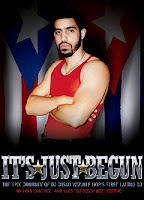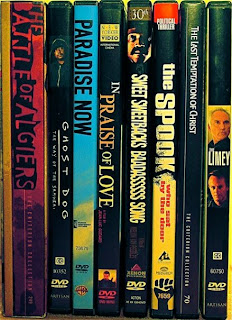This past year, 2009, brought on many things that put a smile on my face. It would be inappropriate to say that these very things made me proud to be Latino because I have always been proud. Nonetheless, the fact that a Latina,
Sonia Sotomayor, made it to the U.S. Supreme Court (the highest court in the land) and that a Latino,
Joseph Acaba, made it out to space put a huge smile on my face. President
Obama's appointment of
Hilda Solis as Secretary of Labor and
Thomas Perez as assistant attorney general for Civil Rights Division (
USDOJ) reflect a commitment by Latinos to persevere. Some of their stories mirror the stories of other Latinos who are struggling against the odds and looking to persevere as well.

Many things throughout the year brought me happiness from a loving wife, beautiful daughters and a wonderful family. Other things outside of my immediate circle that made me proud were the new friendships I developed throughout the year, seeing everyday Latinos do some amazing things within and for their communities and the selfless promotion of
nuestra culturas. I witnessed everything from Latino artists, painters, authors, singers, community activists and many more who are doers in their own right. Many have amazed me with their abilities and never ending energy to go forward, while others have inspired me just the same.
The year was not without its challenges and/or issues, that as Latinos we must keep abreast of and continue to keep an eye and ear to. Challenges to and issues related to health-care reform, immigration laws, education and the old ugly face of stereotypes and racism. All of these are issues and challenges which remain in the forefront of things that we face, must come together and tackle and educate each other and others about. When
MTV's "True Life: I'm a
Nuyorican" was pulled off the air and Lou
Dobbs was ousted from CNN we demonstrated that Latinos can unite, organize and bring about positive change.
The challenge to all Latinos is to stand up and continue to prosper. To continue to connect and share so as to be better informed and prepared in the face of diversity. To take pride in ourselves and in the accomplishments of others. To make 2010 a year of even greater unity and accomplishments. The possibilities are endless and even more attainable than ever, we must continue building on the achievements of 2009.
May 2010 prove to be just as exciting and may we continue to unify and solidify our communities.
P'alante!









.gif)

.jpg)














